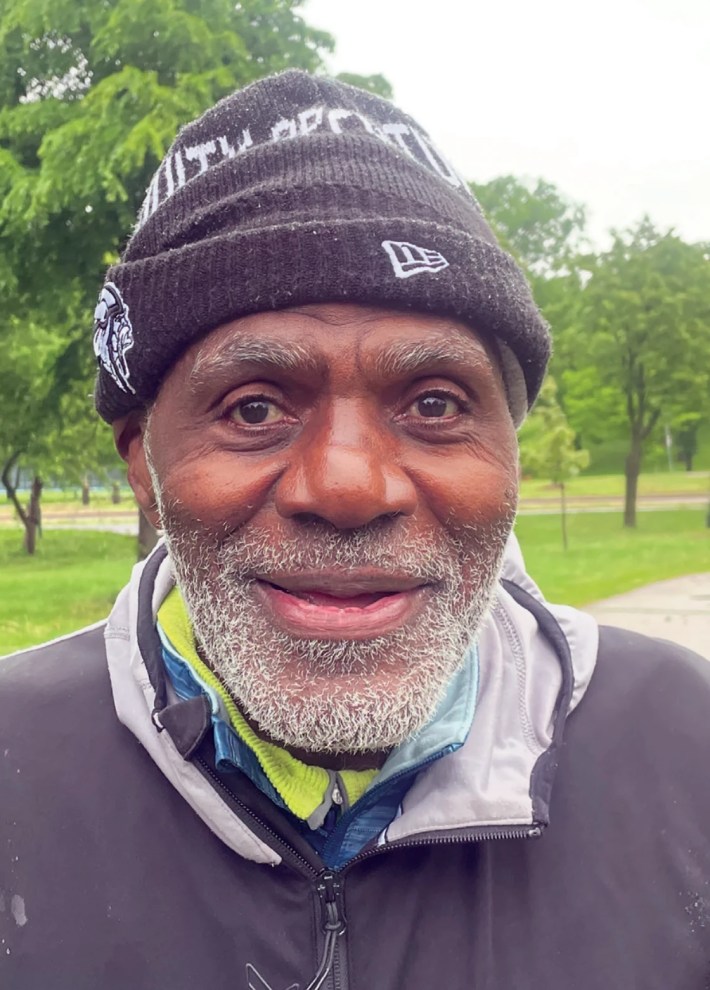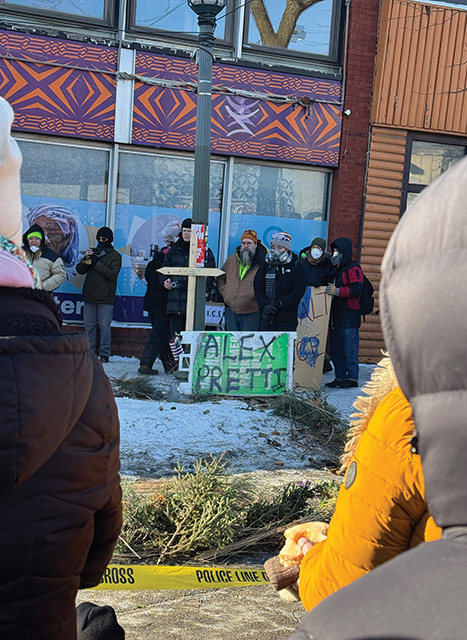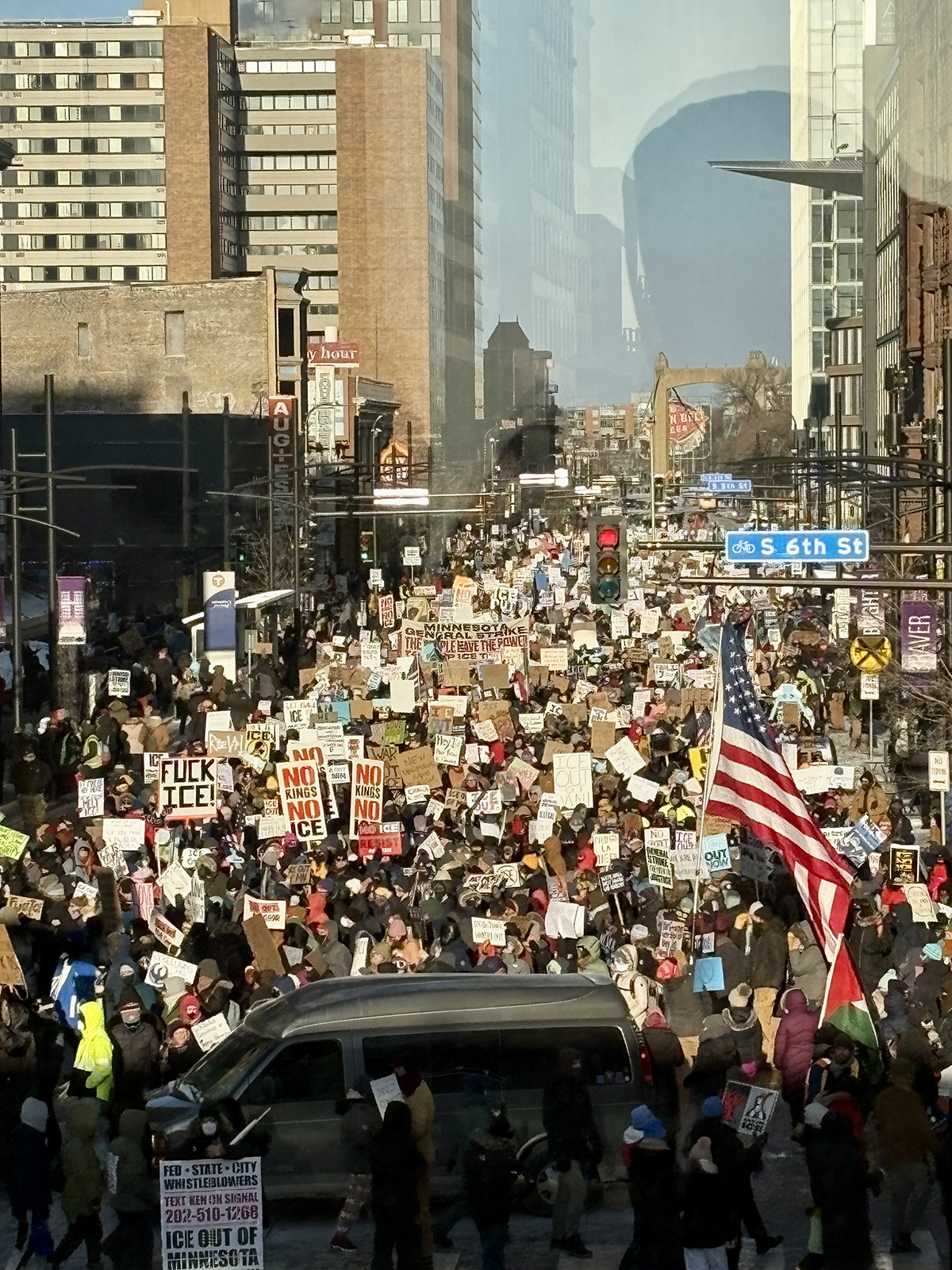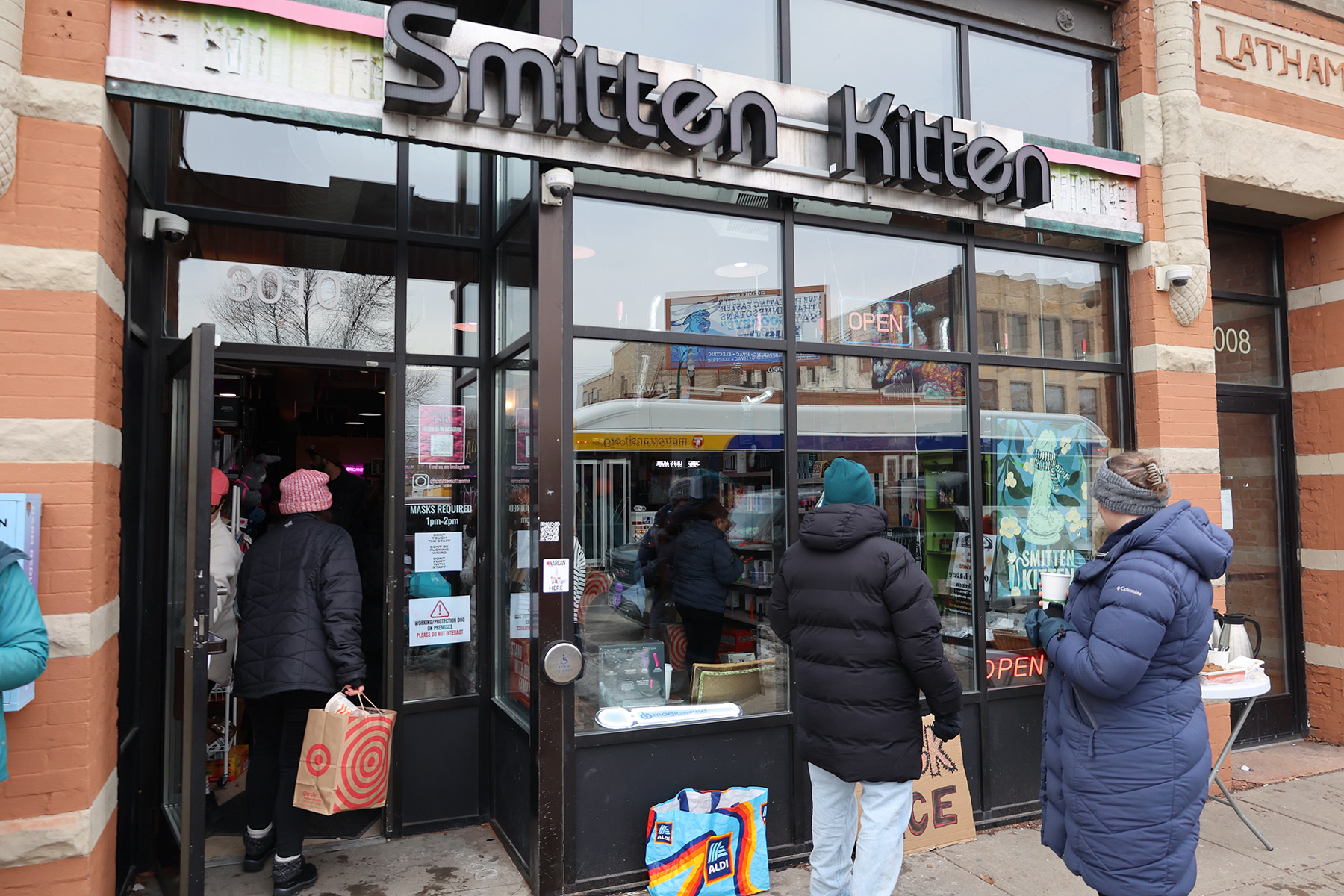
David Piper is a retired judge and regular contributor. He lives in Kenwood.
This is the second of a two-part series about Justice Page. The first was published in the July issue and dealt with his formative years, and this article deals with his professional careers, his family, the Page Foundation and his relationship with Diane. The first article incorrectly named his siblings. His siblings are Twila, Marvel and Howard. His children are Nina, Georgi, Justin and Kamie. This interview has been edited for length and clarity.
How do you compare your time as an NFL player with service on the Minnesota Supreme Court?
I loved the competition with the Vikings and Bears, giving it my all. When I was on the football field, I was 100% there.
Same in law school, with my family and on the Supreme Court, I was 100% there. I have always been able to compartmentalize things in my life.
Football is entertainment. Its enduring value… you know, on the grand scale of things — not very much. It’s good entertainment for the moment and provides some good memories. At least this is my view of it. No enduring social value.
The law — and my opportunity to serve on the court — I guess the best way to describe it is, while on the court, you know, I would go back and — trying to figure out what to say in an opinion or how to analyze a case — you go back and read cases from the 1860s.
Well, think about what I was doing then. Somebody, you know, 150, 200 years from now, coming back and reading the opinions that I wrote or the cases that I was involved in. I mean, there’s just no comparison between the two.
How did you end up on the Minnesota Supreme Court?
I started off just wanting to practice law. I worked at the law firm Lindquist & Vennum for five years and then in the Minnesota Attorney General’s office for seven years.
Private practice was not my cup of tea. The practice of law is a business, and I did not like that. I loved working in the Attorney General’s office under Skip Humphrey, giving clients my best legal advice without worrying about whether the client was going to come or go or anything else.
A weird thing happened in 1982 or 1983. I woke up one morning and, in the newspaper, there was an article saying that Governor Perpich was going to appoint me and some other people to judgeships in Hennepin County.
That was out of the blue for me. But it made me think that maybe, maybe — it could be for me. The law is about doing justice. And it made me think that maybe there was something I had that I could contribute to the judiciary. Over time, as I developed as a lawyer — because then I was basically a new lawyer.
I mean, thank God, he didn’t appoint me then. It would have been a disaster. But as I developed as a lawyer, as I began to understand who I was as a lawyer, what my strengths were, what my interests were, and it became clear to me that what appellate court judges do was where my interests and strengths lay. And thinking about that, I thought, well, if someday you become a district court judge, you can use that as sort of the stepping stone to the appellate courts.
In 1990, reasoning that the people of Minnesota should decide who should serve the full term, I filed to run against incumbent Supreme Court Justice Glen Kelley. I had nothing against Justice Kelley personally, and he was close to retirement. But before I left the Secretary of State’s office, Justice Kelley had resigned, and the vacancy had been filled. I sort of took it personally. I was not pleased.
In 1992 Governor Arne Carlson extended incumbent Supreme Court Justice Lawrence Yetka’s term so that Justice Yetka could maximize his retirement benefits. I filed a lawsuit against Governor Carlson and others asserting that it was unconstitutional for taking Justice Yetka’s election off the ballot.
Some people thought I was crazy, and others thought I was right. The Minnesota Supreme Court (consisting of retired appellate judges, because of the obvious conflict of interest) agreed with me, and I went on to win the general election. Again, I had nothing against Justice Yetka personally.
During the primary and general election all I heard was, “he’s not qualified, he’s just a football player,” or he is “just a dumb Black football player.” Nobody asked my opponents whether they were qualified.
The people of Minnesota had none of it. I am forever grateful to the voters of Minnesota. They put their trust in me and gave me the opportunity to serve. And the rest is history.
How did you like being on the Supreme Court?
I absolutely loved it. You know the old saying, or the old cliché, “It’s what I do, not who I am?” Well, for me, being on the court was close to being who I am.
The cases were interesting to me. When I was running, we came up with the slogan “A Justice for All,” and I took that to heart. I was there to represent everybody in all cases — in cases that I liked and didn’t like.
The people in them deserved — no matter who they are, no matter what the case was, no matter its dollar value, no matter whether somebody’s liberty was at stake — each case deserved all that I could give it.
How did you meet Diane?
In the spring of 1971, I had a meeting at General Mills. After I left the meeting, I realized that I had left my satchel behind. While waiting for my satchel, I met Diane, who was working in market research.
She volunteered at the Blaisdell Boys Club that primarily worked with African American boys in south Minneapolis. And she asked me to visit the boys she volunteered with.
It took me a while to respond to her invitation, and she would say I was a little slow on the switch. We started talking, a phone call here, a phone call there. It became clear to me that she was someone special and she somehow liked me.
I am very shy. Very shy. I eventually asked her out to lunch. Again, she said I was slow on the switch.
We married in 1973. She was one incredible human being. She had the ability to read people in an instant. She could lift people up and make them better than what they might otherwise have been. And she absolutely did it for me.
Our relationship is difficult to describe. I could not tell where I ended and she began, or where she began and I ended. I think it is hard for people to understand.
How did the Page Foundation come into being?
Diane and I came up with the idea in 1988, the year I was inducted into the Pro Football Hall of Fame. We decided that being inducted would be great, but there had to be something more to it than just another pat on the back for being a good football player.
We concluded that we had both the obligation — but also the opportunity — to create opportunity for others so that they might have the same kind of success that both of us had.
Education is unique in that regard. It can put anybody in the position to have the opportunity to achieve their hopes and dreams. And it’s grown by leaps and bounds.
Are you pessimistic or optimistic about the future?
I have four children and four grandchildren. They’re wonderful human beings, and I love spending time with them. Children are my hope for the future. They’re the ones that keep me energized. Hard not to be hopeful when you spend time with young people.
What are you most proud of and — I know it sounds morbid — how do you want to be remembered?
If I had to say there is something I’m most proud of — it’s Diane. I mean our relationship.
And, you know, I suppose inclusive of that is the things that we tried to do. Trying to make this world a better place.
We have been fortunate, and we’ve had the opportunity to do — to try to do — good. And there are those who would say, “Well, but why?” Because this is it. Because — as Paul Wellstone said — “we all do better when we all do better.” And not everybody’s been as fortunate as we have. And I think we both believed that we have some obligation — given our good fortune — to try to lift others up.
One of my good friends — he would put it this way. Kevin Warren, the CEO and President of the Chicago Bears — spoke to our Page Scholars once and he said, “You know, as you ride the elevator of success to the top, you only have one responsibility. When you get to the top, send the elevator back down. Don’t expect or wait for the elevator to go back down on its own. Send it back down.”





